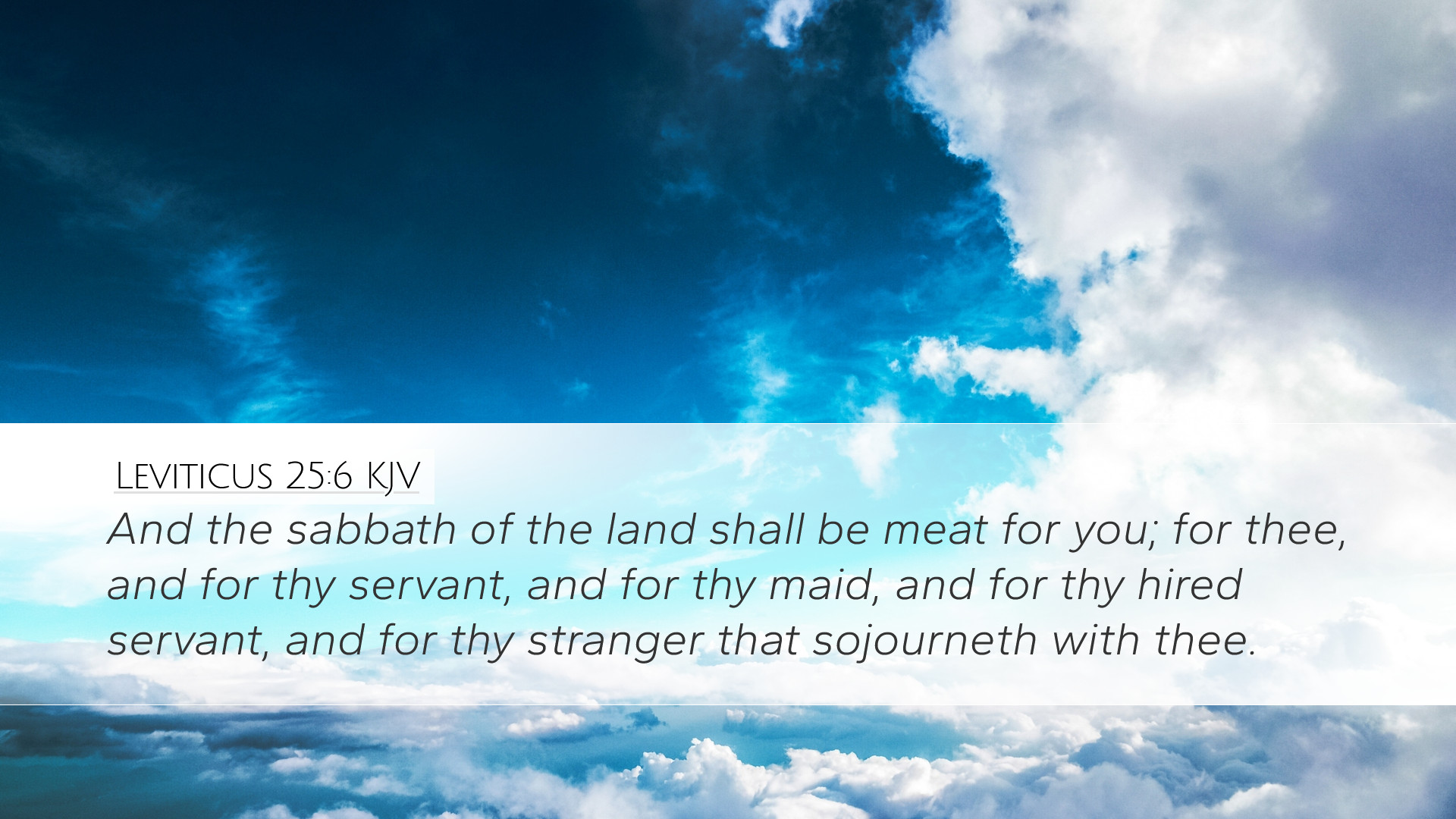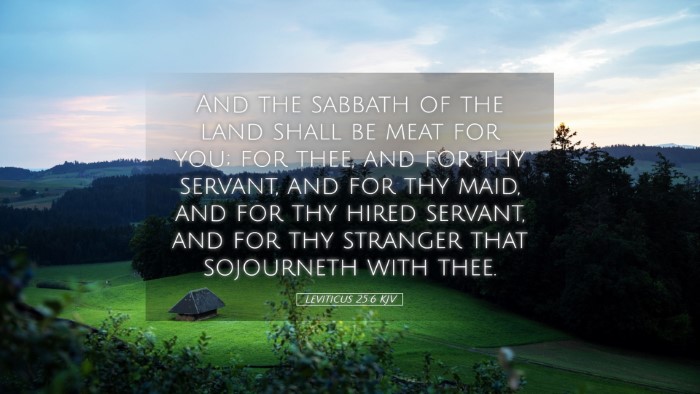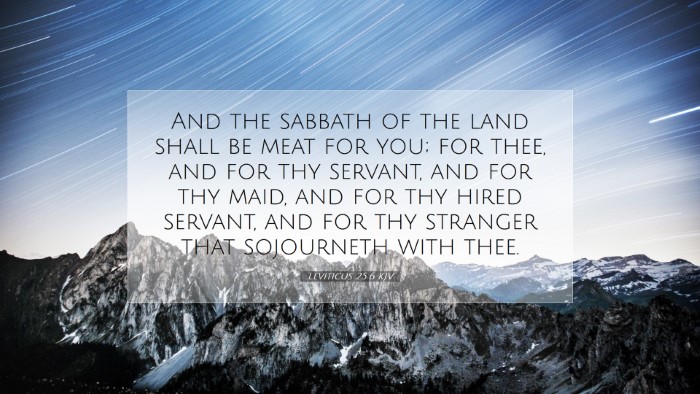Commentary on Leviticus 25:6
Verse Text: "And the sabbath of the land shall be meat for you; for thee, and for thy servant, and for thy maid, and for thy hired servant, and for thy stranger that sojourneth with thee."
Introduction
This verse is a part of the larger context of the laws governing the Jubilee Year, which emphasize God's provision, rest, and the equitable treatment of all individuals within the community of Israel. Leviticus 25:6 reflects the divine intention behind these laws and provides essential principles on the Sabbath and stewardship of the land.
Contextual Background
Leviticus, as a book, addresses the rituals and holiness codes of the Israelites. It places a significant emphasis on God’s commandments, which were designed to promote holiness and set apart Israel as a nation. Chapter 25 expressly deals with the principle of rest for both the land and the people. The Sabbath of the land is a concept that invites the people to trust in God's provision and to consider the welfare of all members of the community.
Exegesis of the Verse
“And the sabbath of the land shall be meat for you…”
This phrase denotes that the land, when allowed to rest, will continue to provide sustenance. The "sabbath of the land" refers to the practice of fallowing the fields every seventh year, which was not only an agricultural necessity but a divine ordinance. The underlying principle is that God, the giver of all good gifts, ensures that during this rest, the people will receive provision from His bounty.
The Inclusive Nature of God’s Provision
Matthew Henry emphasizes the inclusivity of God's provision, noting that it extends to various members of the community:
- For thee, referring to the owner of the land.
- For thy servant and thy maid, acknowledging those who work for the landowner.
- For thy hired servant, recognizing those who are employed temporarily.
- And for thy stranger that sojourneth with thee, indicating God's care for the marginalized and foreigner.
This aspect reveals God's heart for community, urging His people to provide not only for themselves but also for those who might be vulnerable. It frames the concept of rest not just as a personal luxury but as a communal responsibility.
Spiritual Implications
Albert Barnes comments on the spiritual ramifications of this command. The Sabbath offers a rhythm of work and rest that mirrors the divine pattern established at Creation. In allowing the land to rest, the Israelites acknowledge their dependence on God, who provides both physical sustenance and spiritual renewal. The concept propounds the deeper principle of trust in God’s provision, reminding believers that their sustenance comes from Him, not merely from their labor.
Theological Reflections
Adam Clarke further elaborates that this passage poses profound theological reflections regarding stewardship and divine providence. As stewards, the Israelites were called to manage their resources—land, labor, and time—in a way that honored God and benefitted the surrounding community. The act of letting the land rest facilitated a deeper relationship with God, one rooted in faithfulness and acknowledgment of His sovereignty.
Practical Applications for Today
The principles found in Leviticus 25:6 transcend their historical context and offer rich applications for contemporary believers:
- Sabbath Rest: In an age characterized by relentless work and productivity, the call to rest remains significant. Pastors and spiritual leaders are reminded to advocate for the sabbath rhythm—one that balances labor with moments of intentional rest and worship.
- Community Care: Emphasizing inclusivity in community practices; churches and faith communities are encouraged to extend care to all members—servants, the marginalized, and strangers. This sets a precedent for compassion and social justice within the faith community.
- Trusting God’s Provision: In a culture that values self-sufficiency, the call to trust in God's provision remains a challenge. Discipleship involves recognizing that all things come from Him and that our sustenance is ultimately rooted in God's faithfulness.
Conclusion
Leviticus 25:6 serves as a reminder of God's overarching narrative regarding rest, provision, and community care. By reflecting on this verse, pastors, students, and scholars alike can glean vital insights into the nature of God's economy, the importance of stewardship, and the beauty of community living under divine ordinance. As we strive to live out these principles, we are continually shaped into more faithful followers of Christ, embodying His love and care in our world.


